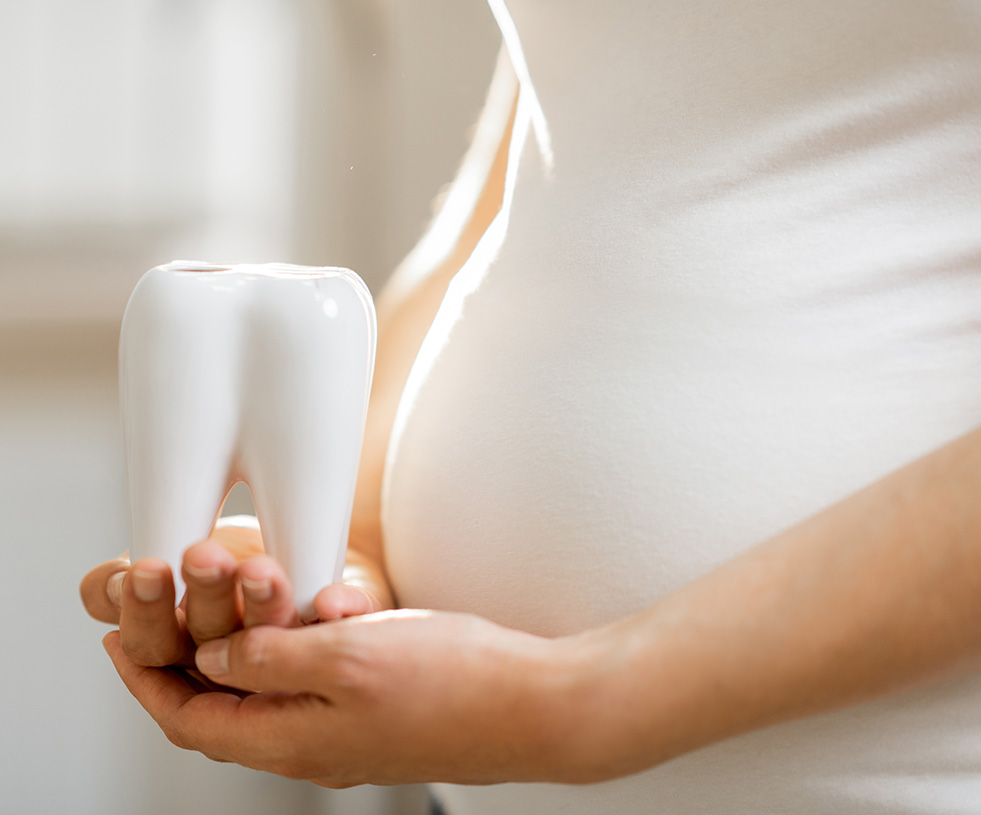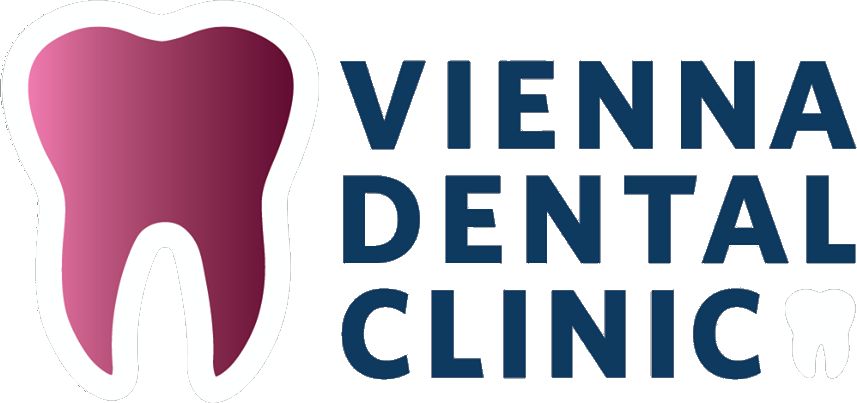Dental Development During Pregnancy
Between 6 and 8 weeks of pregnancy, babies begin to grow and form tooth buds. A fetus is just about the size of raspberry at week 8! Teeth are among the strongest bones in the human body. Thus, their development takes time. Mom’s nutrition is critical at this period. Calcium and a solid balance of vitamins and minerals will aid in the development of those tooth buds into healthy baby teeth.


Newborns & Infants up to 12 months
Healthy habits for teeth and gums start right from birth. Parents should wipe the baby’s gums with a clean, soft cloth or gauze after feedings to help remove germs and sugar, which can cause tooth decay. The American Academy of Paediatric Dentistry recommends avoiding frequent sugary food or drink throughout the day and avoiding putting an infant to bed with a bottle.
The teething process for children can generally start anywhere from 4-10 months.
The American Dental Association (ADA) suggests cleaning a baby’s teeth with plain water and a soft-bristled brush until he or she is two years old, at which point toothpaste can be introduced.
Toddlers & Young Children up to age 6
Parents must bring their children to their first dental appointment as soon as their teeth begin to appear. The typical age at which a child is brought in for their first dental visit is roughly 18 months.
By the age of 33 months, most children have erupted all 20 of their baby teeth. Exploring growth, development, and oral health with your child can be a joyful and exciting time. Mirrors, games, 2-minute timers, and other things can be used to make your child’s dental hygiene regimen more enjoyable. A healthy home care routine consists of brushing and flossing twice a day.
Age 6-12 – Growing Permanent Teeth
Many youngsters have lost multiple baby teeth by seven and have begun to grow adult teeth. The dentist will monitor your child’s facial growth and development, as well as the eruption of permanent teeth and the loss of baby teeth.
According to the American Association of Orthodontists, children should receive their first orthodontic check-up by seven. An orthodontic consultation can identify any possible abnormalities with the bite and jaw alignment and establish if any treatment can be administered to encourage proper alignment before the problems worsen and necessitate orthodontic treatment interventions such as braces.
By the age of 13, most youngsters should have grown in 28 of their 32 permanent teeth. Children continue to grow, learn about themselves, and build their sense of identity at this stage of adolescence. Around this time, many children will begin orthodontic treatment, such as traditional or clear braces or Invisalign. Throughout childhood and adolescence, regular dental check-ups and cleaning visits every six months are essential.
Age 16-21: Wisdom Teeth
Wisdom teeth come up between the ages of 17 and 21. During frequent check-ups and cleanings, the dentist will monitor the location and progression of the child’s wisdom teeth before and during this time. Some people do not have wisdom teeth, while others may only have one, two, or three. Wisdom teeth must develop and expand in accordance with the rest of the teeth and jaw. Wisdom teeth can grow in and fit nicely in some circumstances. On the other hand, Wisdom teeth can sometimes grow at an angle that causes other teeth to shift out of alignment or even cause harm to the surrounding teeth. Wisdom teeth can also be impacted, which means they only erupt partially through the gum line.
